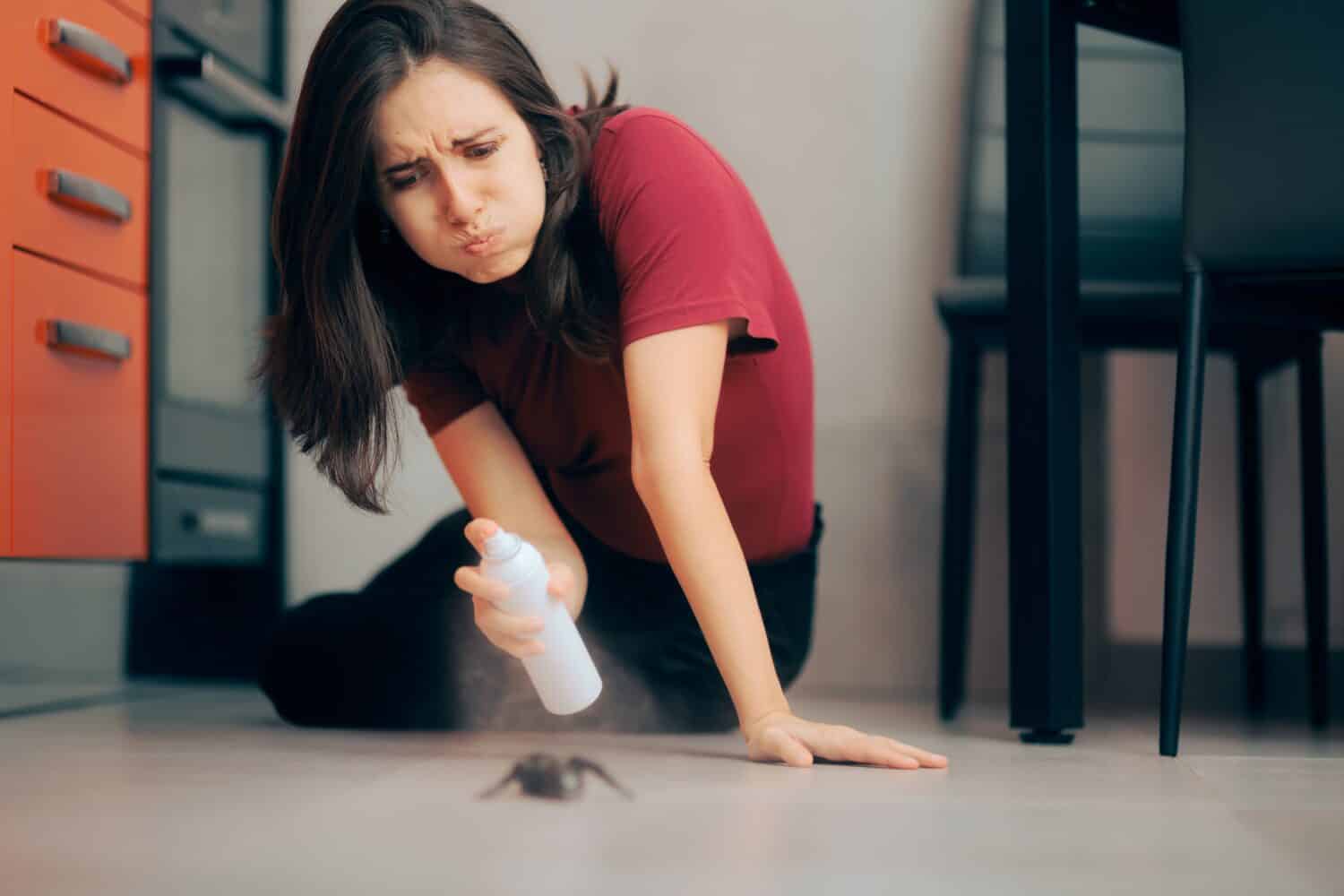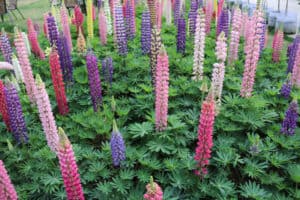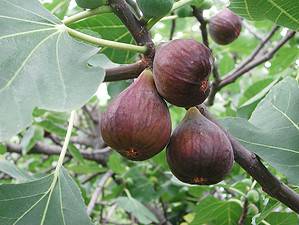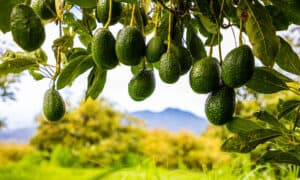Picture your perfect garden: bursting with colorful vegetables and full of life. For many, a garden is a sanctuary to unwind in. Now, picture a swarm of pests nibbling away at your green paradise. The instant reaction may be to grab a bottle of insecticide to deal with the issue, right? But hold that thought! That insecticide may do more harm than good when sprayed on your precious plants.
In this article, we will explain why chemical bug killers might not be your best friend after all. From harming helpful bugs and tainting our precious water sources to possibly making your family and pets unwell, the consequences can be more severe than you think. Read on to find out the top reasons to never put insecticide in your garden!
1. Harm to Beneficial Insects
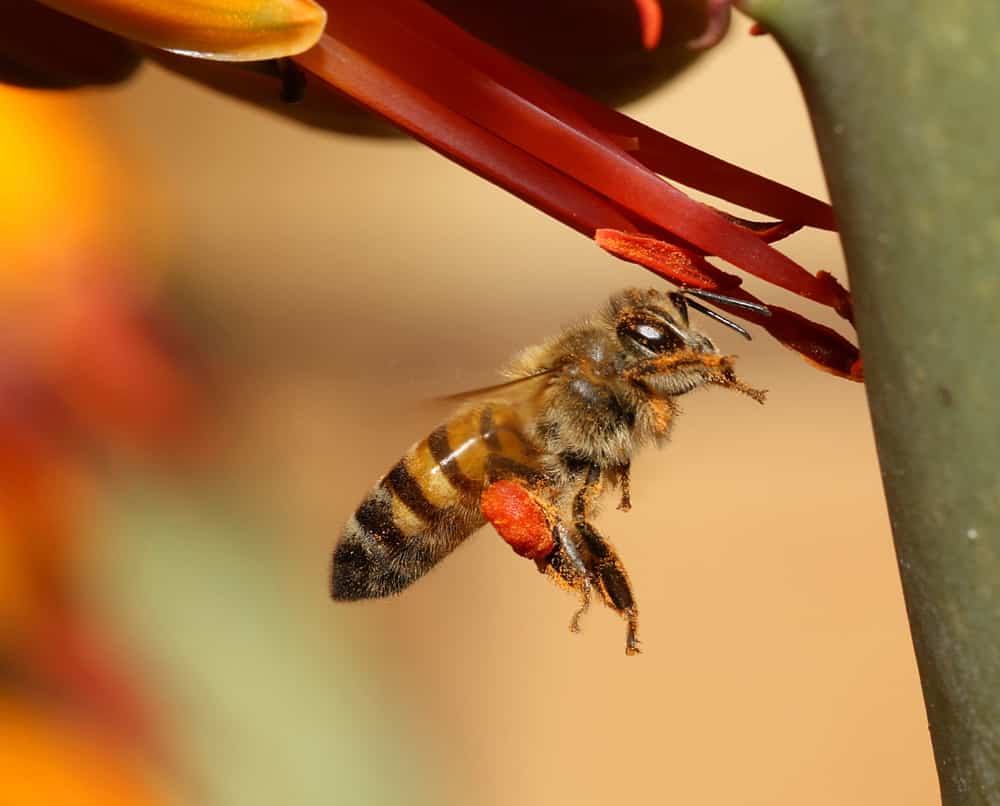
Bees are extremely important pollinators. Without bees, the world’s ecosystem could collapse.
©Hennie Briedenhann/Shutterstock.com
Let’s start with one of the top reasons to never put insecticide in your garden. Insecticides, though designed to eliminate pests, don’t discriminate. They may severely harm numerous beneficial insect species that dwell within our gardens. The chemicals don’t have the ability to distinguish between destructive pests and advantageous insects, hence playing an unintended, destructive role.
The most important beneficial insects in your garden are pollinators such as bees and butterflies. Their role in our gardens is immense as they aid in plant reproduction by transferring pollen, ensuring the production of fruits and seeds in many plant types.
Eliminating these pollinators can severely impact your garden’s overall productivity and aesthetic appeal. Therefore, it’s vital to think about these consequences before opting for chemical pest control methods.
2. Biodiversity Loss
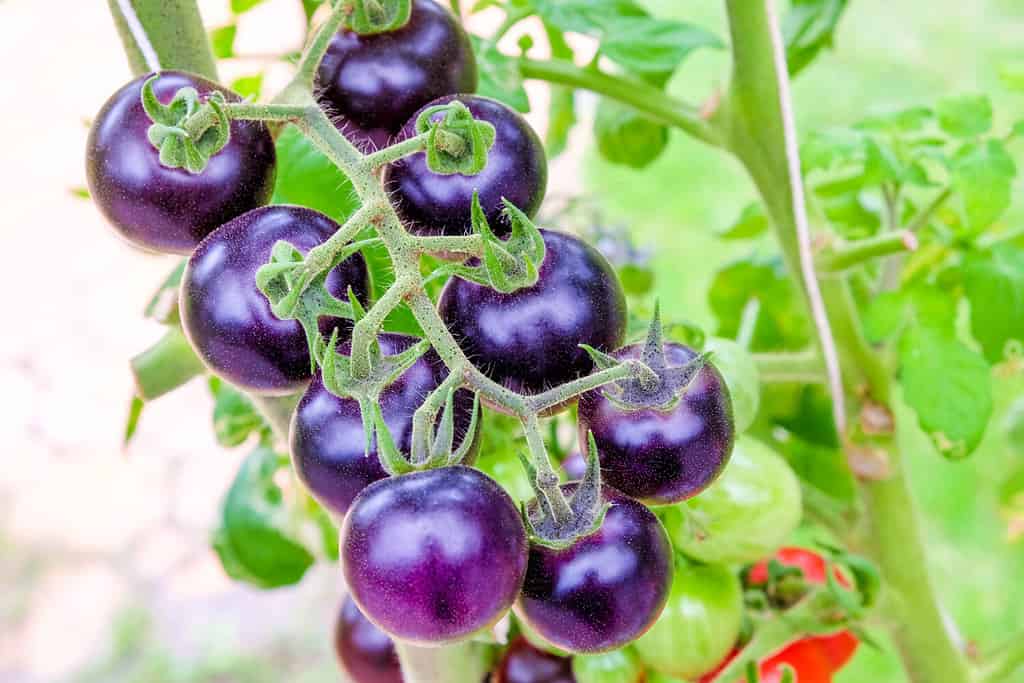
A diverse ecosystem is important for your garden to grow and thrive.
©Nattapol_Sritongcom/Shutterstock.com
Insecticides, while effective at combating pests, unfortunately, also contribute to a significant decrease in biodiversity within our gardens. A thriving garden ecosystem depends on a diverse range of insects, each playing a unique role.
By indiscriminately eliminating insects, these chemicals reduce the species inhabiting the garden. This loss of biodiversity is harmful because it destabilizes the complex network of interactions between various organisms that allow the ecosystem to function effectively.
Insects serve various crucial functions in the garden. They participate in pollination and waste decomposition and also act as a food source for other wildlife. While pesky bugs may not seem like they are that important, they are, in fact, a pivotal part of the overall ecosystem. The more diverse an ecosystem, the more resilient it is to changes and disturbances.
When you apply insecticides to your garden, you severely disrupt the balance between different insect species, leading to an unhealthy, unbalanced garden ecosystem. For instance, a decline in the population of certain insects can result in an explosion of others, leading to pest outbreaks.
3. Soil Health
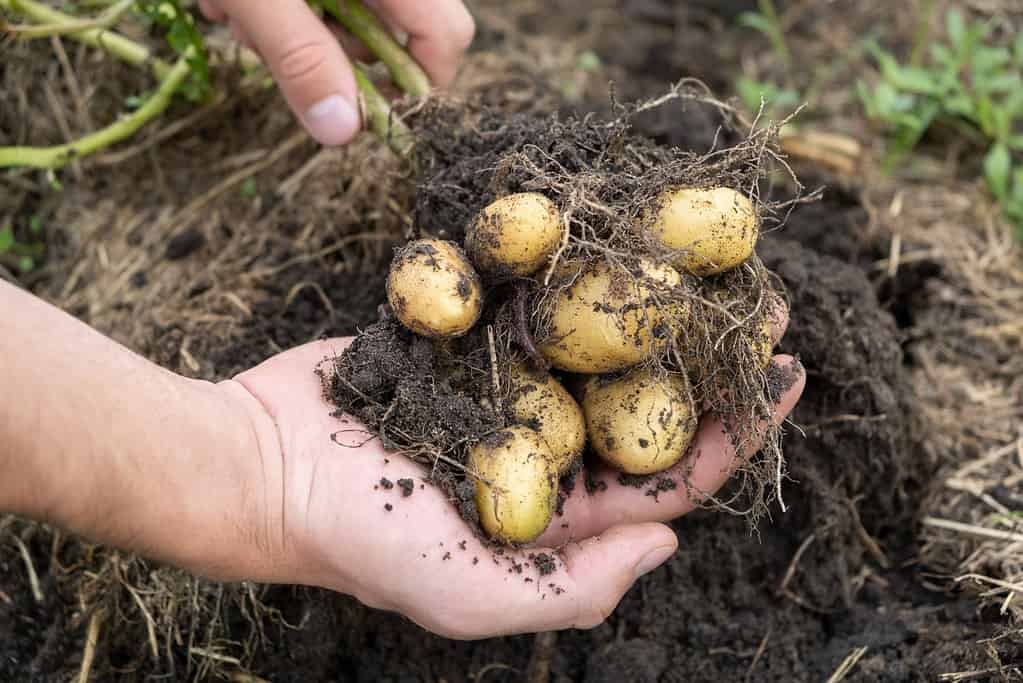
The soil can become contaminated with excessive pesticide use, which can create a flurry of problems.
©ArieStudio/Shutterstock.com
The U.S. applies over a billion pounds of pesticides or herbicides annually, yet only a minuscule 0.1% of these pesticides actually reach and kill their target. The vast majority infiltrates the environment, contaminating soil, water, and air, thus instigating a cascade of ecological repercussions.
These pesticides introduce a toxic blend of chemicals into the soil, severely impacting the living organisms within. Studies reveal that soil typically houses not just a single type but mixtures of pesticide residues, given that multiple pesticides are commonly used together.
For example, apples in Washington are exposed to an average of 51 distinct pesticides through 6 to 17 treatments yearly, allowing little to no recovery time for soil communities.
Further exacerbating the issue is the practice of using pesticide-coated seeds, which escalates the exposure of soil organisms to hazardous chemicals. Seeds treated with insecticides like neonicotinoids are sown directly into the ground, with the bulk of the pesticide lingering in the soil.
4. Resistant Pests
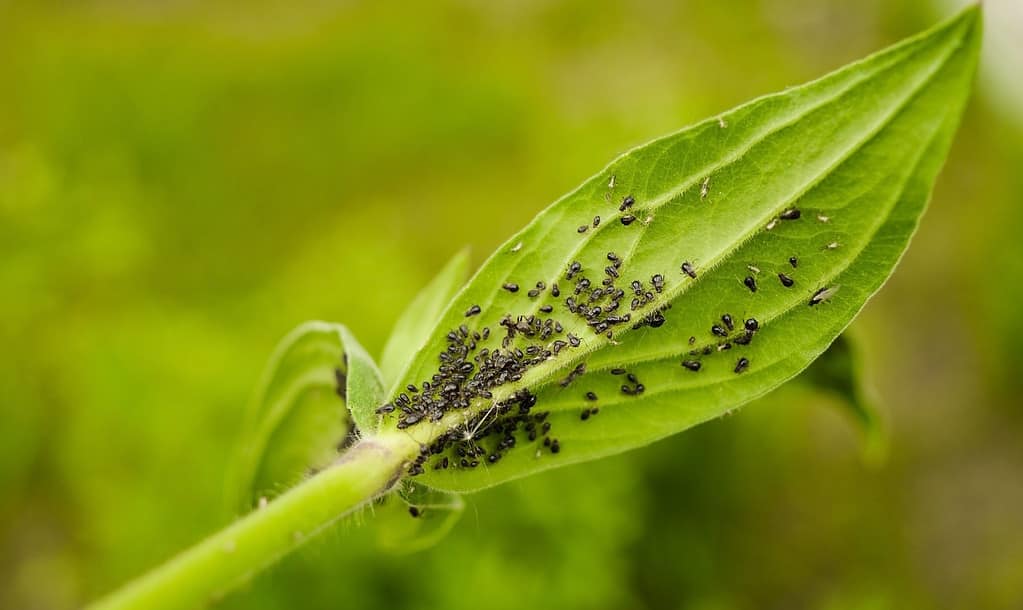
These are aphids, which are some common garden pests that can become resistant to pesticides.
©iStock.com/Irina Starikova
While insecticides can initially be effective in controlling pests, over time, these chemicals can inadvertently create an even larger problem — the emergence of resistant pests. When exposed repeatedly to the same insecticides, some pests can evolve and develop immunity to the chemicals.
This phenomenon, known as pesticide resistance, happens as a result of natural selection. Some pests, due to genetic variation, may survive an insecticide application. These survivors then reproduce, passing on their resistance traits to their offspring. As a result, succeeding generations become increasingly resistant, rendering the same insecticides less effective over time.
The rise of resistant pests poses a significant challenge for gardeners and farmers. To combat these ‘super pests,’ they might resort to using more potent — and often more harmful — insecticides, escalating the cycle of resistance further.
In the worst-case scenario, these resistant pests can become so dominant that they are nearly impossible to control with available insecticides. Hence, while insecticides might offer a short-term solution to pest problems, their long-term consequences, such as developing resistant pests, can lead to more considerable challenges in garden maintenance and pest control.
5. Food Safety

The food we eat may have insecticides on it, which can be harmful to humans, especially small children.
©Serenko Natalia/Shutterstock.com
Unsurprisingly, insecticides can also present significant risks to human health, especially when they come into contact with the food we consume. After all, insecticides are a type of poison designed to kill animals. The WHO has highlighted that pesticides, including insecticides, can be toxic to humans, causing various health issues.
These concerns span numerous health domains, including potential cancer risk, disruption of the reproductive system, and detrimental impacts on our immune and nervous systems. This is especially significant if the food grown in our gardens — fruits, vegetables, or herbs — becomes contaminated with these chemicals.
Prior to their authorization for use, insecticides must undergo rigorous testing to determine all potential health effects. Expert analysis of these results is crucial in assessing risks to human health. Yet, even with these precautions, residues can still remain on our produce and pose a risk.
6. Water Contamination
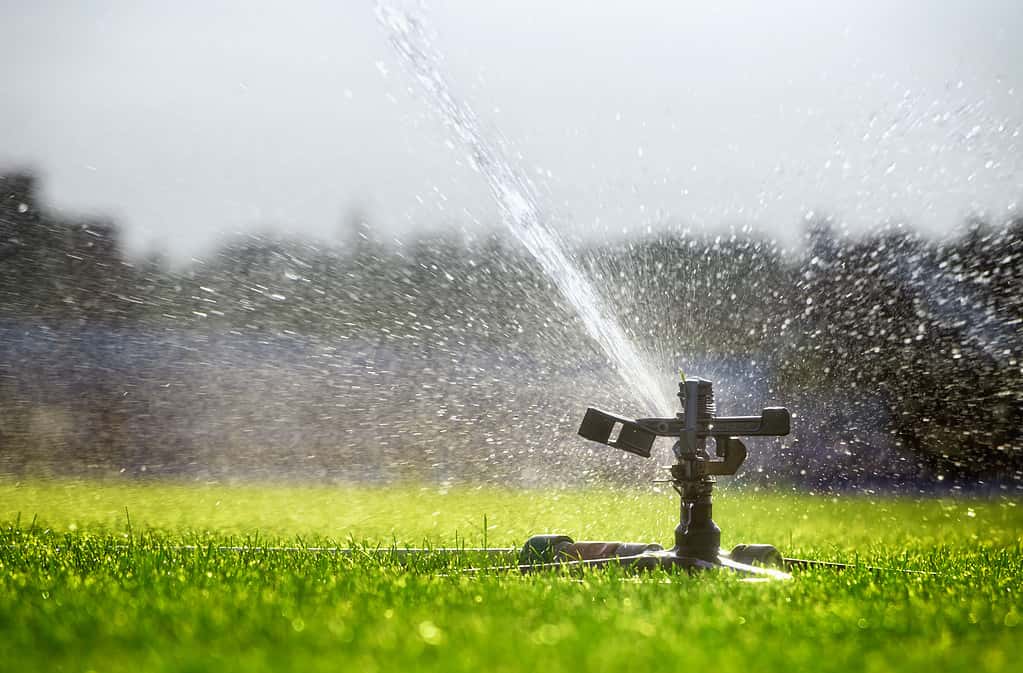
It is a huge problem if insecticides can enter bodies of water and contaminant water sources.
©iStock.com/
Another reason to never put insecticides in your garden is the risk of water contamination. Water pollution, a significant environmental concern, is often a consequence of using insecticides. This form of pollution arises when harmful substances infiltrate our water sources, altering their properties and making them unsafe.
Such contamination frequently happens when the rain sweeps away insecticides applied to crop fields into streams or other bodies of water. This alters the chemical, physical, or biological conditions of these water bodies, making them toxic.
The adverse impact extends to all organisms that ingest or interact with these contaminated waters, which is why the environmental implications of water pollution are manifold and severe.
When insecticides are dispensed on crops, they can seep below the surface, reaching the water-bearing layers known as aquifers. This contamination is unsafe for humans and makes the water polluted and unfit for agricultural use.
7. Human Health
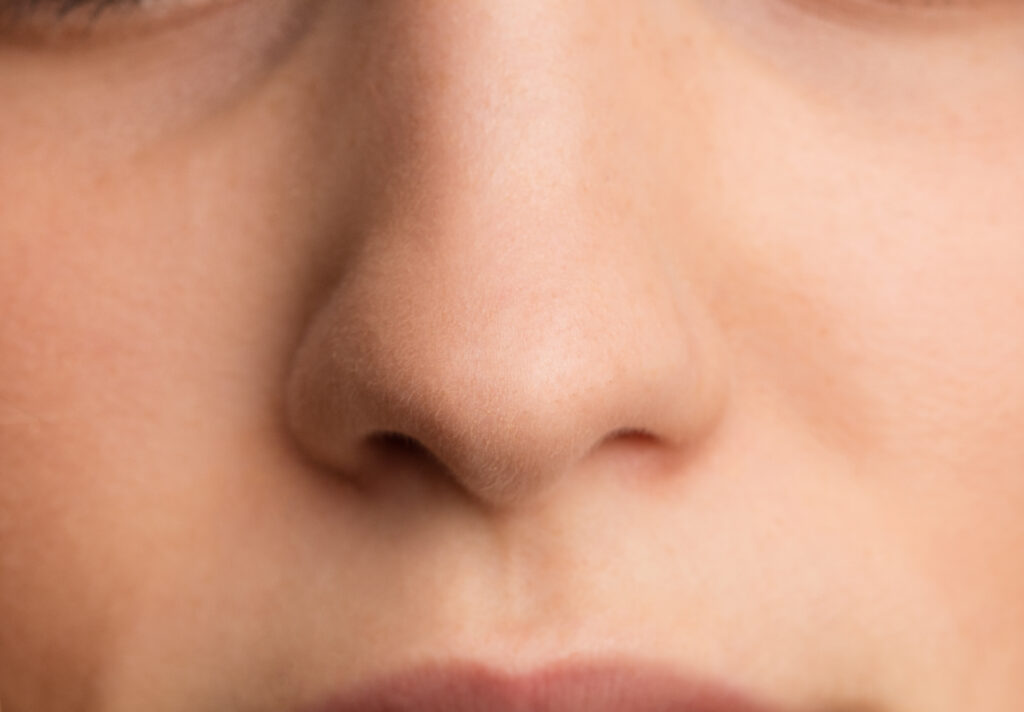
These chemicals don’t only harm insects. They can even pose a threat to humans with prolonged exposure.
©Asier Romero/Shutterstock.com
Insecticides can result in immediate harmful health effects, known as acute effects, as well as long-term effects that may only surface for months or years post-exposure. Acute effects can range from irritation of the eyes, skin rashes, and nausea to more severe reactions like blindness, severe diarrhea, and even death.
Certain populations are at heightened risk from pesticide exposure. For instance, young children and infants are more prone to the toxic impacts of pesticides compared to adults.
Due to their increased exposure, those working in farming or pesticide application also face heightened vulnerability to more severe side effects.
8. Pet Safety

Your furry friends may also accidentally ingest insecticides which can be catastrophic.
©Tatyana Consaul/ via Getty Images
It is essential to never put insecticides in your garden if you own pets. Many different types of insecticides can be a potential threat to your pets. Our pets often explore, play, and even eat and drink in our gardens, which can expose them to harmful insecticides.
These chemical substances, specifically formulated to eliminate insects, can also harm mammals, including our pets. Whether through direct contact with the skin or ingestion, insecticide exposure can lead to various health problems for our pets. Initial reactions may be simply mild skin irritation or digestive issues, but they can escalate to more severe conditions like breathing difficulties, seizures, and, unfortunately, in some cases, even fatality.
Additionally, prolonged exposure to insecticides can result in chronic health complications for our pets. These can parallel the long-term effects observed in humans, such as disorders of the immune system and increased susceptibility to certain forms of cancer.
Opting not to use these chemicals can help create a safer environment for your beloved companions, enabling them to freely relish the outdoors.
9. Impact on Other Species
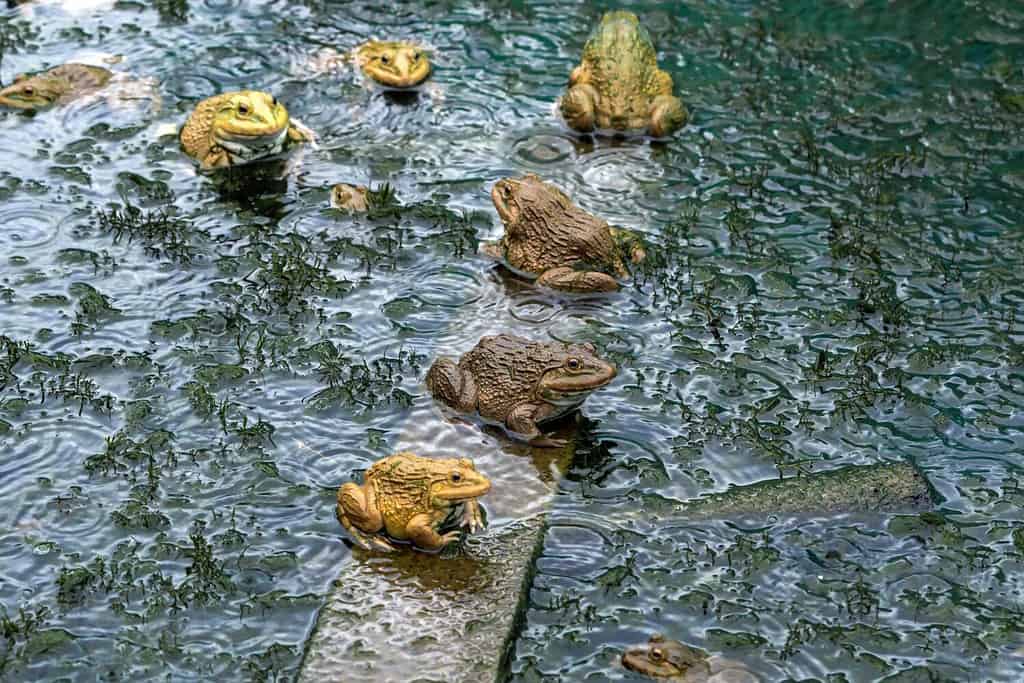
Amphibians can absorb toxic insecticides through their skin.
©Nach-Noth/Shutterstock.com
As mentioned, the influence of insecticides isn’t limited to pests; it extends to a broad range of species that coexist in your gardens. By disrupting the delicate balance of the ecosystem, you may inadvertently threaten many organisms that you did not intend to harm with the pesticide.
Birds, for instance, feed on insects and can suffer from insecticide-induced food shortages or even direct poisoning if they consume insects carrying high levels of these chemicals. Similarly, amphibians, which have permeable skins and often inhabit water and soil, where insecticides accumulate, are highly susceptible to their toxic effects.
Even species living far away can be affected. Insecticides can wash off into local water systems, impacting aquatic life, including fish and amphibians, and eventually reaching marine ecosystems.
10. Decline in Natural Pest Control
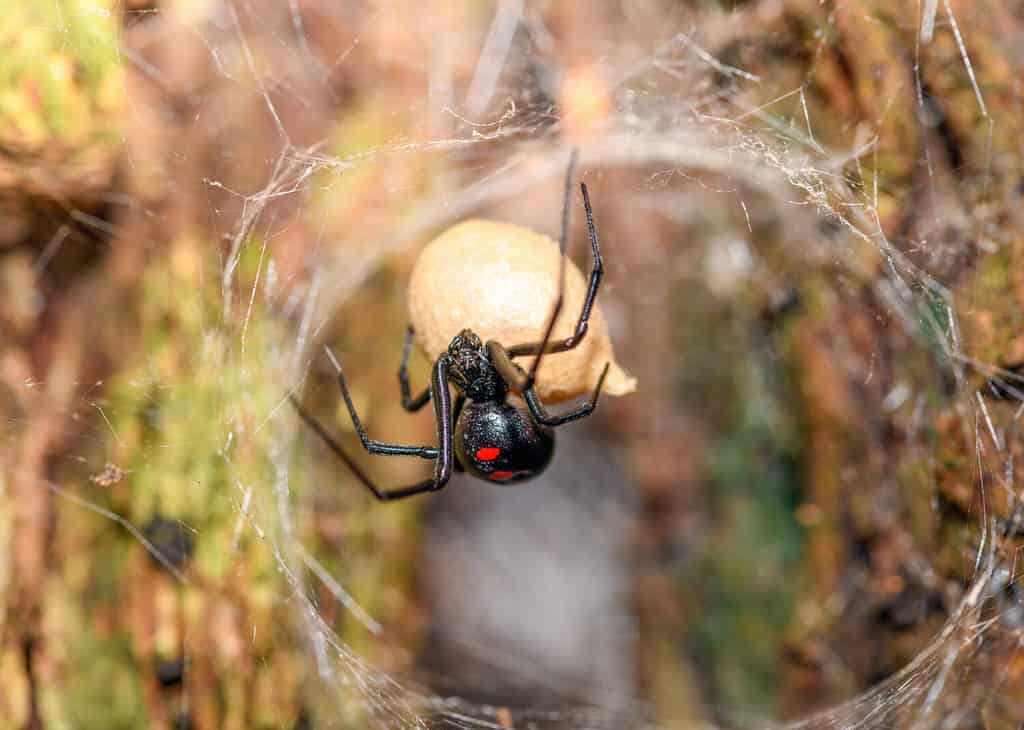
Spiders act as a natural insecticide in your garden as they catch and eat other insects that feed on your plants.
©Jeff W. Jarrett/Shutterstock.com
The use of insecticides in your garden might have an unintended side effect: a decrease in natural pest control mechanisms. As mentioned earlier, insecticides not only target unwanted pests but also affect the beneficial organisms that contribute to natural pest management.
Many insects, spiders, and birds, which we often view as integral parts of our garden ecosystem, are nature’s pest controllers. They feed on harmful pests, thus naturally keeping their populations in check. When insecticides are used indiscriminately, these helpful creatures can also fall victim, disrupting the natural balance.
As a consequence, your garden can become more, not less, vulnerable to pest infestations. With the disappearance of natural predators, pest populations can rebound swiftly and potentially in larger numbers. This phenomenon, known as a pest resurgence, can create a vicious cycle, prompting further use of insecticides and escalating the problem.
In addition, the lack of natural predators can also allow secondary pests, which were not initially a problem, to cause new nuisances.
11. Economic Costs

The cost of continuously buying insecticides for your garden can add up.
©Artmim/Shutterstock.com
Firstly, if you are regularly applying insecticides, you will have to regularly buy the products. It might seem like a minor cost at first, but over time, as pests develop resistance, the need for higher quantities or more potent (and more expensive) insecticides can escalate these costs significantly.
Secondly, the impact on beneficial insects can lead to an increase in pest infestations over time, requiring more and more insecticides. This may even necessitate professional pest control services, adding an extra expense.
Moreover, the indirect costs of using insecticides, often overlooked, can also be substantial. These can include potential health costs from exposure to harmful chemicals or the expenses associated with repairing damage to soil health and biodiversity in your garden.
12. Climate Change Impact

Insecticide use and production is a big contributor to climate change.
©freie kreation/Shutterstock.com
The connection between insecticide use and climate change is a complex one, with several aspects often overlooked. But there is no doubt about it that using insecticides inadvertently contributes to global warming and the broader climate crisis.
Insecticide production is a heavily energy-dependent process. From sourcing raw materials to chemical manufacturing processes, substantial amounts of energy are used, leading to sizeable greenhouse gas emissions. Furthermore, for large-scale farming, distributing these products requires the use of vehicles, typically powered by fossil fuels, resulting in additional CO2 emissions. I know you aren’t likely to be using heavy machinery to spray pesticides on your home garden, but your personal use still leaves its mark.
Once in your garden, insecticides can negatively affect soil health. Healthy soil is a critical carbon sink, capable of capturing and storing carbon dioxide from the atmosphere. But insecticides can damage the microbial communities that facilitate this process, reducing the soil’s carbon sequestration ability and indirectly increasing atmospheric CO2 levels.
Insecticides also threaten pollinators, key players in plant reproduction and growth. With fewer plants due to diminished pollination, less carbon dioxide is absorbed from the atmosphere through photosynthesis, again contributing to higher greenhouse gas concentrations.
All in all, insecticides are no good, and the 12 above reasons outline why you should never put insecticides in your garden.
Garden Pest Control Alternatives to Insecticide
Here are a few of the best alternatives to insecticides for keeping pesky insects out of your garden.
- Plant strongly scented plants and herbs such as garlic, mint, rosemary, lavender, or basil.
- Plant marigolds. Marigolds attract good insects like bees but deter aphids and other garden pests.
- Install garden nets around your plants to keep out larger pests and insects (this won’t help much with aphids, but it will against birds and other larger pests.)
Summary of the Reasons to Never Put Insecticide in Your Garden
| Reason | Why it Matters |
|---|---|
| Harm To Beneficial Insects | Kills helpful pollinators and predators. |
| Biodiversity Loss | Reduces insect variety and populations. |
| Soil Health | Destructive to vital soil microorganisms. |
| Resistant Pests | Encourages pest resistance to insecticides. |
| Food Safety | Contaminates edible garden produce. |
| Water Contamination | Leaches into and pollutes waterways. |
| Human Health | Potential risk to human health. |
| Pet Safety | Can cause illness in pets. |
| Bioaccumulation | Accumulates in animal food chains. |
| Impact On Other Species | Harms non-target wildlife species. |
| Decline In Natural Pest Control | Reduces natural pest controllers. |
| Economic Costs | Costly and potentially ineffective strategy. |
| Climate Change Impact | Contributes to greenhouse gas emissions. |
Thank you for reading! Have some feedback for us? Contact the AZ Animals editorial team.

